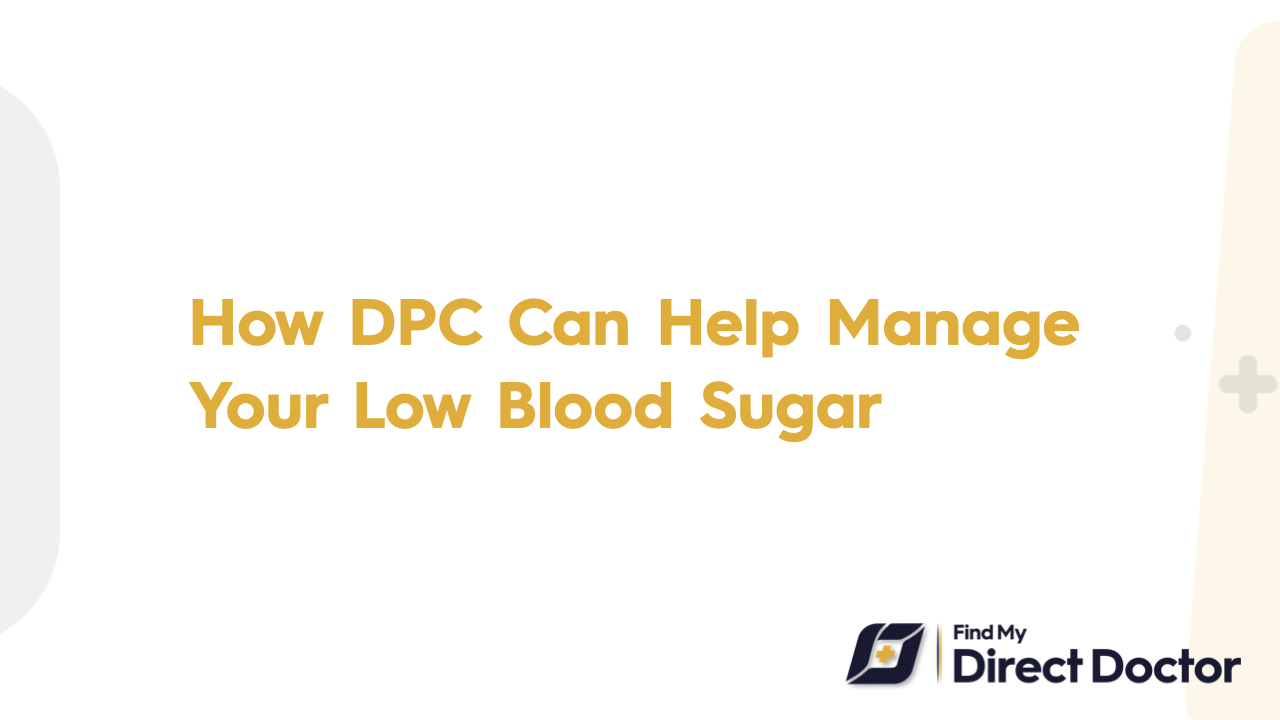



When blood glucose levels fall below normal, it's referred to as hypoglycemia, or low blood sugar. This can occur for a number of causes, such as missing meals, drinking too much alcohol, or taking too much insulin or diabetic medicine. Prolonged physical exertion or an underlying medical condition might also cause low blood sugar. The body uses glucose as its main energy source, particularly the brain, and low glucose levels can affect regular internal processes.

Depending on how severe the dip is, low blood sugar symptoms can change. Shaking, lightheadedness, disorientation, and agitation are typical symptoms. In more extreme situations, hypoglycemia can result in weakness, impaired vision, trouble focusing, and even fainting. It may result in convulsions or unconsciousness if treatment is not received. In order to return blood sugar levels to normal and avoid more catastrophic problems, immediate intervention is essential.
By providing regular, individualized care and continuous monitoring, Direct Primary Care (DPC) can be very helpful in managing low blood sugar. A DPC approach enables more frequent check-ins and prompt treatment plan modifications because patients have direct contact to their primary care physician. Because it enables real-time monitoring of symptoms and blood sugar levels, this is particularly helpful for people with diabetes or other illnesses that make them more susceptible to hypoglycemia.
Additionally, DPC can offer instruction and direction on how to manage low blood sugar. Doctors and patients can collaborate to create a strategy that incorporates hypoglycemia prevention techniques like meal planning, routine blood sugar checks, and medication adjustments. A DPC provider can assist in making sure that insulin or other prescription dosages are appropriately maintained for those with diabetes, lowering the likelihood of episodes of low blood sugar. Patients are better prepared to manage low blood sugar issues before they become crises if they receive ongoing treatment and have access to a medical practitioner.
The increased degree of access and support provided by DPC is one of the main advantages for people with low blood sugar. In contrast to conventional healthcare models, DPC allows patients to communicate directly with their doctor without having to wait a long time or make hurried visits. This degree of accessibility guarantees that patients can receive prompt guidance when they encounter hypoglycemic symptoms, assisting in addressing issues before they become major difficulties. Having a reliable healthcare professional close at hand can bring comfort to those managing long-term illnesses like diabetes that produce blood sugar swings.
DPC's emphasis on preventive care is another important advantage. DPC enables a proactive approach to controlling the triggers of hypoglycemia, which can include poor diet, stress, or medication imbalances. In a DPC, primary care physicians spend time teaching patients how to maintain healthy blood sugar levels through lifestyle choices, exercise, and diet. By lowering the frequency of bouts of low blood sugar and enhancing general quality of life, this individualized care helps patients better understand their illness and how to manage it.
Direct Primary Care is the perfect strategy for managing low blood sugar since it places a strong emphasis on personalized care. Patients with hypoglycemia or those who are at risk can get a personalized care plan in a DPC setting that is suited to their individual requirements. Detailed recommendations on meal scheduling, suitable snacks, and lifestyle-appropriate blood sugar monitoring methods may be part of this strategy. A DPC doctor may customize these suggestions to guarantee the best course of action for each patient because every person's body reacts differently to food, exercise, and medicine.
DPC also has the benefit of ongoing observation and modification. A DPC provider can evaluate the patient's progress, modify the treatment plan as needed, and offer continuing education with frequent check-ins. This continuous interaction lowers the likelihood of severe hypoglycemia episodes by ensuring that any changes in the patient's health or symptoms are swiftly handled. DPC helps people with low blood sugar better manage their disease by adopting a more customized strategy, which reduces complications and improves their overall well-being.
Previous Post